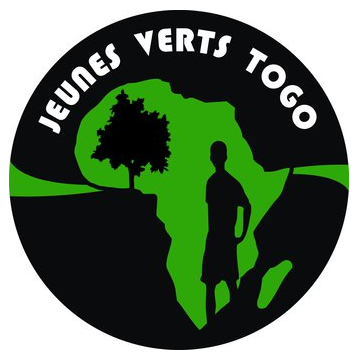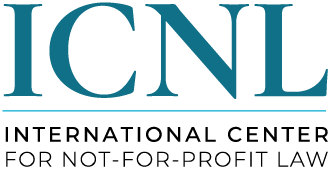CS Fund is a nonprofit family foundation dedicated to creating an equitable democracy and a just transition to a regenerative economy and food system. CSF addresses critical, under-resourced issues; contends with root causes of problems; and seeks systemic solutions. They practice values-aligned grantmaking and investing and serve as a partner and resource to their grantees. As a small foundation, they strive to educate and organize other funders to invest in critical strategies and organizations, and bring their institutional voices together to advocate for important issues related to their grantmaking.
The Just Transitions program will employ a grantmaking praxis that’s both wide and deep. Wide includes regional/national/multinational movement networks that are directly trusted by and accountable to communities, and deep are frontline/grassroots organizations that are resisting the current system and reducing its harms, as well as creating systems that live into liberated futures. This program will be forward thinking and evolve over time. They will use an adaptive approach to learning, evaluation and planning, including participatory evaluation processes. Knowledge and data generated will be shared as a public good for the broader field.
Sectors
As they are trying to bridge and weave several movements together that often are not in relationship, they will be funding across a wide variety of sectors and areas. These include the following:
- Climate Justice - recognizes that their current extractive, supremacist cultures are the root causes of climate change and calls for investment in sustainable, community-led solutions for and by the Global Majority
- Environmental Justice - fair treatment of people of all races, cultures, and incomes with respect to the development, adoption, implementation, and enforcement of environmental policies
- Food Sovereignty and Agrarian Land Reform - the right of peoples to healthy and culturally appropriate food produced through ecologically sound and sustainable methods, and their right to define the use, ownership, and governance of their own food, land, and agriculture systems
- Indigenous Sovereignty and Rights - rights and sovereignty afforded to Indigenous peoples in alignment with the UN Declaration on the Rights of Indigenous Peoples
- Digital and Data Justice - the equitable treatment and redress of past harms of all people in technology and data collection/use, regardless of race, abilities, gender, age or social context.
- Anti-Racism / Racial Justice / Caste Equity - the systematic fair treatment and protections of people of all races and/or castes, resulting in equitable opportunities and outcomes for all
- Black Lives Matter and Black/African/Afrodescendent Liberation - working to repair both the historic harms of slavery, colonization, and the continued exploitation of Black, African, and Afrodescendent peoples by advocating for liberation from oppression
- Humanitarian and Emergency Response - saving lives, alleviating suffering, and maintaining human dignity during and after man-made crises and disasters caused by natural hazards
- Community Power and Grassroots Democracy - building political processes which are driven by groups of ordinary citizens, as opposed to larger organizations or wealthy individuals with concentrated power
- Solidarity Economics / Economic Justice - movement to build a just and sustainable economy where they prioritize wealth distribution for people and ecosystems over profit and growth
- Gender Equity - intersectional approach that centers the diverse needs, experiences, and leadership of people most impacted by discrimination, oppression, and violence
- LGBTQIA+ Rights and Self-Determination - ensuring that lesbian, gay, bisexual, transgender, queer, intersex, asexual, and all gender minority people can live openly without discrimination and enjoy equal rights, personal autonomy, and freedom of expression and association
- Labor Justice - fighting the lack of labor rights, precarious work, gender-based violence, human trafficking, prison labor, poverty, income inequality and a push by business interests to drive down wages and working conditions
- Health Justice - everyone has a fair and just opportunity to attain their full health potential and that no one is disadvantaged, excluded, or dismissed from achieving this potential
- Disability Justice - a wholly intersectional framework and movement that examines disability and ableism as it relates to other forms of oppression – race, class, gender, sexuality, citizenship, etc. – and that ableism makes these intertwined forms of oppression possible, which need to be dismantled as a whole
- Arts and Culture - residents, artists, and others using arts and culture strategies to build community power and community-led change
- Transformative Justice - liberatory approach to violence which seeks healing, safety, resilience and accountability for all without relying on alienation, punishment, incarceration or policing
Funding Information
- Grants will fall into the range of $30k-$100k USD per year, which will be determined by the grantee's needs, capacity, and direction. Grants will be provided as unrestricted funds. For international grantees, grant awards will be unrestricted if legally permissible.
- Grants will be for 3 year commitments with the potential to renew for another term at the end of the program cycle
- They anticipate that 20-30 awards will be made across this program cycle starting in June 2023
- 30%-40% of total program funds will be made to US applicants, and 60%-70% will be made across Central America and Caribbean, South Asia, and West Africa
Geographies
They have relied on guidance by movement, frontline and funder organizations that CSF has been in deep relationship with to focus on under-resourced areas with pronounced climate/environment risk and geopolitical opportunities.
- Central America and Caribbean: Belize, Costa Rica, El Salvador, Guatemala, Hondura, Nicaragua, and Panama, as well as countries and territories of the Caribbean Sea.
- South Asia: Afghanistan, Bangladesh, Bhutan, India, Maldives, Nepal, Pakistan, and Sri Lanka
- United States: All 50 states, as well as territories in the Caribbean, with a preference for work in the Midwest, Alaska, Hawaii, and Puerto Rico.
- West Africa: Benin, Burkina Faso, Cape Verde, The Gambia, Ghana, Guinea, Guinea-Bissau, Ivory Coast, Liberia, Mali, Mauritania, Niger, Nigeria, Senegal, Sierra Leone, and Togo
Eligibility Criteria
- Non-profit public charity or a fiscally sponsored project based in the US or internationally
- Place-based work in one or multiple of the following geographic regions: Central America and the Caribbean, South Asia, the United States, and West Africa
- Work centers social and ecological justice
- Have an explicit anti-racist and/or anti-casteist focus, and actively work to protect and build power for cultures and identities that are historically marginalized in your region
- Your organization is directly accountable to communities where you work, with active feedback to allow for critique, learning, and adaptation of your work
For more infromation, visit CS Fund.



